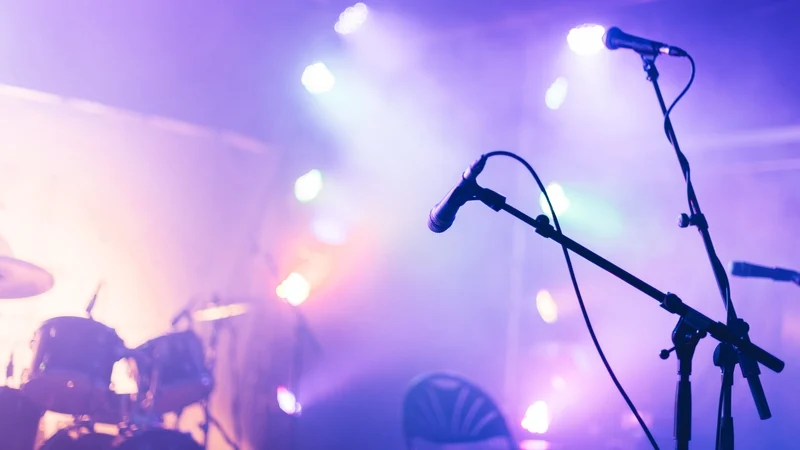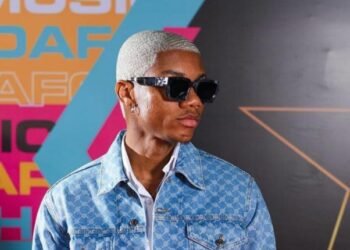A study has found that song lyrics have become angrier and more repetitive over the past four decades.
According to research, lyrics in rock, rap, country, pop, and R&B songs have also become simpler and more personal.
The researchers mentioned that rap songs showed the strongest increase in anger and negative emotions, while country songs had the lowest.
Eva Zangerle, an assistant professor at the University of Innsbruck’s Department of Computer Science in Austria, stated that anger-related words may have become more common because music “reflects more general changes in society and culture”.
Prof Zangerle and her colleagues analyzed the lyrics of 12,000 English-language songs released between 1980 and 2020, as well as the page views of the lyrics on the online platform Genius.
They found lyrics have become simpler and easier to understand over time, while also becoming more emotional and personal.
The analysis also showed the number of different words used within songs has decreased, particularly among rap and rock songs.
The team speculated this may be because of changes in how music is enjoyed, such as increases in songs being used as background music.
“In the last 40 years, we have witnessed a change from buying records in the store to being able to choose from hundreds of millions of songs on streaming platforms on the phone. This has also changed the way music is consumed.”
Prof Zangerle
By analyzing the page views on Genius, the team found older rock songs were viewed more than newer ones, but the reverse was true for country songs. They noted that it could indicate rock listeners prefer lyrics from older songs, while country listeners may prefer those from newer songs.
Prof Zangerle gave Bruce Springsteen’s 1973 song “Spirit In The Night” as a good example of complex songwriting, while she mentioned that Miley Cyrus’s 2019 hit “Slide Away” has simpler and repetitive lyrics.
Recently, Ghanaian television personality Kafui Dey expressed concern about how modern Ghanaian rap music lacks substance.
According to him, the lyrics of most local rap music, are rather a battle of how much money they’ve made or highlights how an artist is more affluent than his colleagues.
Kafui Dey lamented how the new crop of Ghanaian rappers focuses more on money when delivering verses than on impactful lyrics.
However, it is unclear whether or not ‘money’ sells when it comes to the rap industry or whether music lovers love to hear about money motivation in lyrics.
Ghanaian Singers And Stolen Lyrics

Plagiarism and copyright infringement are serious issues in the music industry. It is unfortunate when singers or songwriters steal lyrics or melodies from their colleagues.
When musicians get accused of plagiarism, their artistry comes into question and everyone particularly social media users wade into the conversation about whether or not the music was purposely stolen.
It can result in legal disputes and damage their reputation within the industry. However, it’s worth mentioning that not all cases of similarities in lyrics or melodies can be classified as plagiarism, as similarity can sometimes occur unintentionally.
There have been tons of such cases in Ghana where artists are either accused of stealing beats or songs belonging to other international artists.

Shatta Wale announced that he recorded a song with Jamaican artist Vybz Kartel titled “Mansa Musa Money”. A few days later, a Nigerian artist called Danlil accused the dancehall artist of stealing his yet-to-be-released song.
According to Danlil, the song title and the cover art were all copied from his unreleased song stating they were both done in November 2019 and even shared a picture to back his claim.
Kwami Eugene was accused of stealing lyrics for his hit song “Confusion” from a Malian musician and also for stealing the lyrics for his “Wish Me Well” song from Nigerian rapper, Ice Prince.
According to reports, the rap line “mu keka me ho nsem like I recorded with a stolen mic” was taken from Ice Prince’s “In the Morning” track which originally states “People will be dissing me like I record with a stolen mic”.
Also, a careful analysis of the two songs, Becca’s “No One” and Sho Madjozi’s “John Cena” points out some obvious similarities, including the beats.
Sho Madjozi’s “John Cena” song garnered 12,147,083 views on YouTube after it was released in August 2019 but months later, Becca’s song which is somewhat an adoption of Sho Madjozi’s popular song is out and actively promoted on all her social media platforms.
However, it isn’t clear whether Becca sought the permission of the South African artist or not.
These and several other Ghanaian musicians have also been in the hot seat for copyright infringements.
Artists need to be conscious of their creative process and give proper credit when necessary to avoid any misunderstandings or conflicts.
READ ALSO: Power Sector Crisis, Influence On Election





















